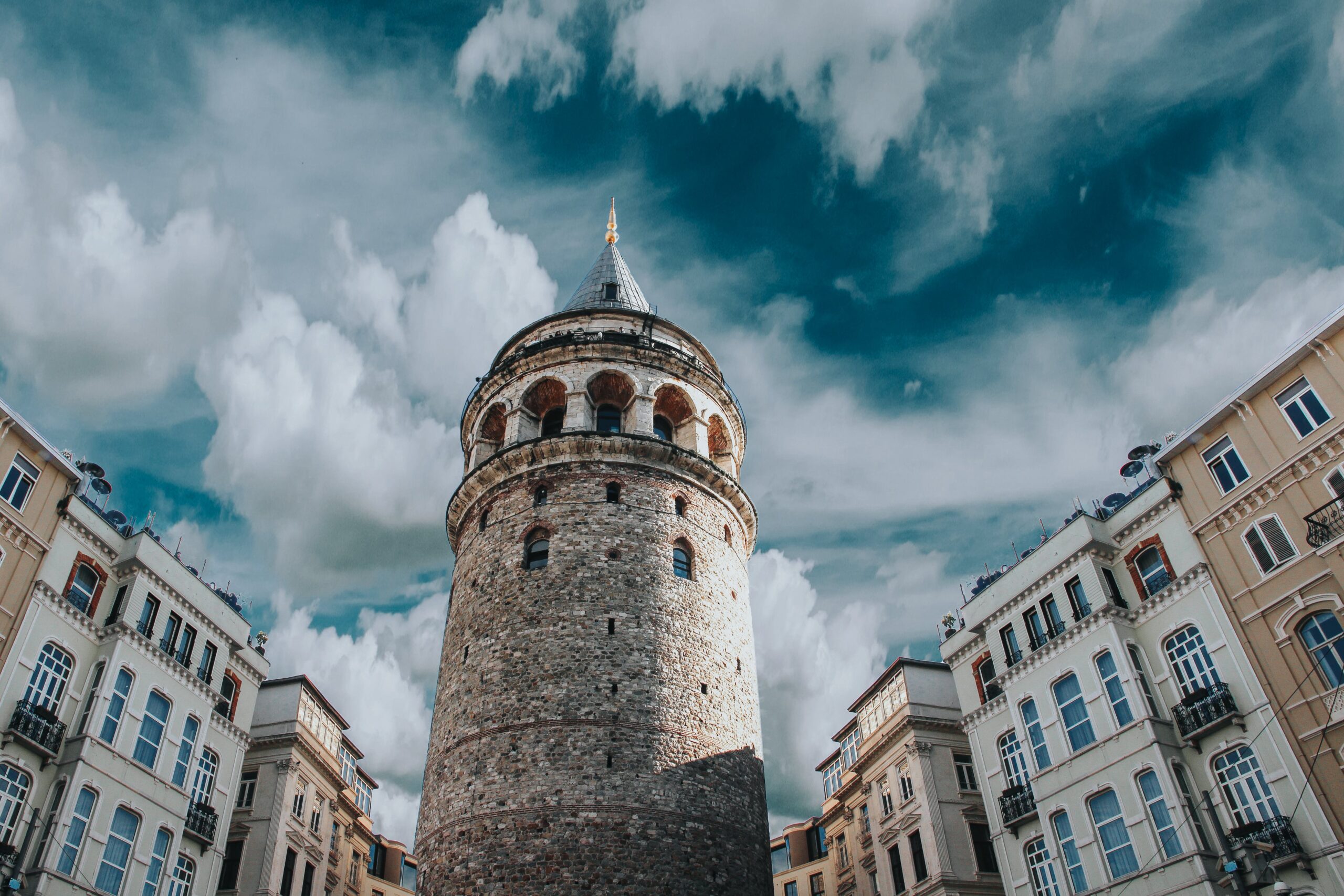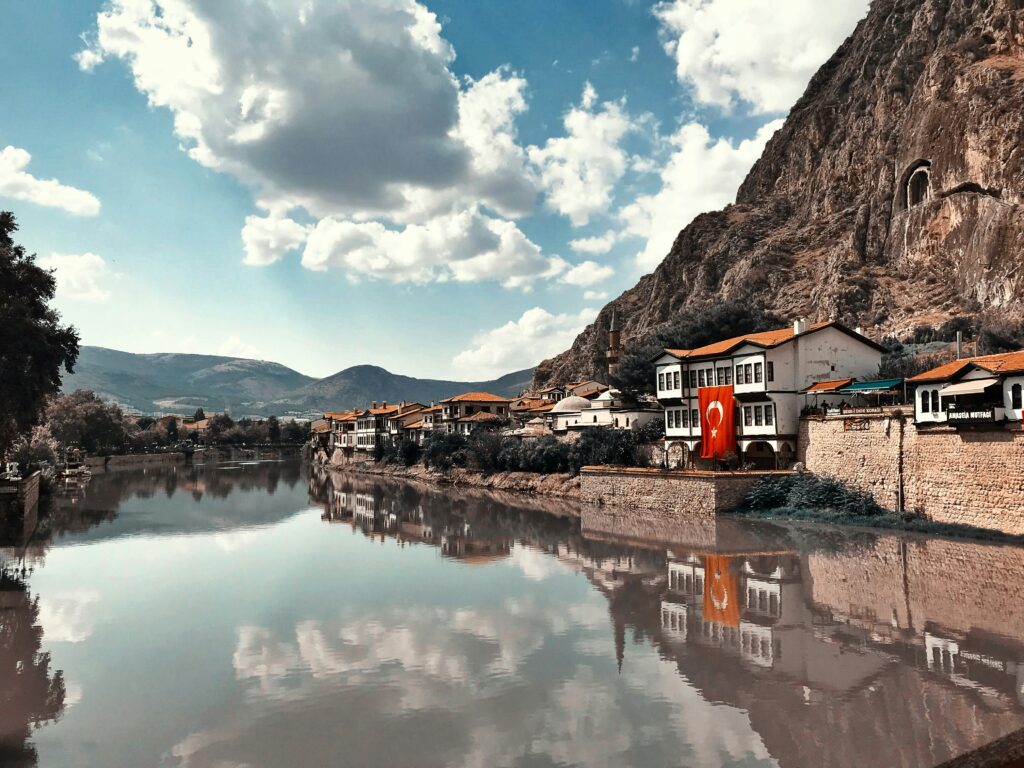Turkey
Turkey, a transcontinental country located at the crossroads of Europe and Asia, is known for its rich history, diverse culture, and strategic importance. The Republic of Turkey, with a population of over 84 million people, bridges the continents both geographically and culturally, offering a unique blend of Eastern and Western traditions. Turkey is bordered by eight countries and has coastlines along the Mediterranean Sea, the Aegean Sea, and the Black Sea.
Historical Background
Turkey’s history is a tapestry of civilizations, empires, and cultural exchanges. The region that is now Turkey has been inhabited since ancient times, with significant contributions from the Hittites, Phrygians, Lydians, and Urartians. It later became a central part of the Roman and Byzantine Empires, with the city of Constantinople (modern-day Istanbul) serving as a key cultural and political center.
The most significant chapter in Turkey’s history began with the rise of the Ottoman Empire in the late 13th century. The Ottomans, under the leadership of Osman I and his successors, built one of the largest and most enduring empires in history, spanning Southeast Europe, Western Asia, and North Africa. The empire reached its zenith in the 16th and 17th centuries under rulers like Suleiman the Magnificent, who oversaw vast territorial expansions and cultural developments.
The fall of the Ottoman Empire after World War I led to the establishment of the modern Turkish state under the leadership of Mustafa Kemal Atatürk. In 1923, the Republic of Turkey was founded, with Atatürk implementing sweeping reforms to secularize and modernize the country. These reforms included the adoption of the Latin alphabet, the abolition of the caliphate, and significant advances in education and women’s rights.
Cultural Heritage and Society
Turkey is renowned for its cultural diversity, influenced by its historical connections to various civilizations and its position as a bridge between Europe and Asia. Turkish culture is a fusion of Turkic, Ottoman, Islamic, and Western elements, creating a unique and vibrant cultural landscape.
Language and religion are central to Turkish identity. Turkish is the official language, and the vast majority of the population is Muslim, with Islam playing a significant role in daily life, customs, and festivals. Ramadan, Eid al-Fitr, and Eid al-Adha are important religious observances, celebrated with community gatherings, prayers, and feasts.
Turkey’s culinary heritage is a testament to its diverse influences, with dishes like kebabs, baklava, mezes, and Turkish delight (lokum) enjoyed worldwide. Turkish cuisine is characterized by its use of fresh ingredients, aromatic spices, and a balance of flavors. The country’s tea culture is also deeply ingrained, with çay (tea) being a ubiquitous part of social life.
Traditional arts and crafts, such as carpet weaving, ceramics, calligraphy, and miniature painting, are highly valued in Turkey, reflecting the rich artistic heritage of the region. Turkey is also home to numerous UNESCO World Heritage sites, including Hagia Sophia, Cappadocia, and the ancient city of Ephesus, which attract millions of tourists every year.
Geography and Natural Beauty
Turkey’s diverse geography includes mountains, plains, rivers, and a long coastline that stretches over 8,000 kilometers. The country is divided into seven geographical regions, each with its own distinct climate and landscape. The Anatolian Plateau in central Turkey is characterized by its arid, steppe-like terrain, while the Black Sea Region to the north is lush and forested.
The Mediterranean and Aegean coasts are known for their stunning beaches, turquoise waters, and historical ruins, making them popular tourist destinations. Cities like Antalya, Bodrum, and Izmir are renowned for their resorts, ancient sites, and vibrant nightlife. The Turquoise Coast, in particular, offers some of the best sailing and yachting experiences in the world.
The Taurus Mountains in southern Turkey and the Pontic Mountains in the north provide opportunities for hiking, skiing, and mountaineering. Mount Ararat, the highest peak in Turkey, is traditionally considered the resting place of Noah’s Ark and is a significant symbol in both Turkish and Armenian culture.
Turkey’s natural wonders include the Pamukkale hot springs, known for their white travertine terraces, and the surreal landscapes of Cappadocia, famous for its fairy chimneys, cave dwellings, and hot air balloon rides. The country’s national parks, such as Mount Nemrut and Göreme National Park, protect its unique natural and historical heritage.
Modern Turkey and Economic Development
Turkey has a mixed economy that has seen significant growth and development over the past few decades. The country is a major producer of textiles, automotive products, electronics, and agricultural goods. Istanbul, Turkey’s largest city, is the economic and cultural heart of the country, serving as a major financial hub and a gateway between Europe and Asia.
Turkey’s strategic location has made it a key player in international trade and energy transit. The country has invested heavily in infrastructure, including the construction of new airports, bridges, and highways, as well as the development of the Turkish Stream and TANAP pipelines, which transport natural gas from Russia and the Caspian region to Europe.
Tourism is a vital sector of the Turkish economy, with millions of visitors attracted to the country’s historical sites, beaches, and natural landscapes. Istanbul, with its rich history and vibrant culture, is one of the most visited cities in the world.
Turkey is also a member of the G20 and has aspirations of joining the European Union, although its accession process has faced challenges. The country continues to play a significant role in regional and global geopolitics, navigating complex relationships with its neighbors and major powers.
In summary, Turkey is a country of immense historical depth, cultural richness, and strategic importance. Its unique position as a bridge between East and West, combined with its diverse geography and dynamic economy, makes Turkey a fascinating and influential nation on the world stage.
Posts
FAQ

Must-visit attractions include the iconic Hagia Sophia and Blue Mosque in Istanbul, the ancient city of Ephesus, the surreal landscapes of Cappadocia, and the breathtaking beaches of Antalya. Turkey boasts a wealth of historical and natural wonders.

Turkish cuisine is incredibly diverse, with flavors ranging from savory kebabs to sweet baklava. Must-try dishes include kebabs, mezes, Turkish delight, and traditional breakfast items like simit and Menemen.
The best time to visit Turkey depends on the region and personal preferences. Spring (April to June) and Autumn (September to November) offer pleasant weather, while summer (June to August) is ideal for beach destinations. Winter is suitable for exploring cultural sites.
Turkey has a well-developed transportation network, including buses, trains, and domestic flights. Rental cars are available for those exploring more remote areas. Public transportation is efficient, and taxis and rideshare services are readily accessible.
To experience Turkey’s rich history and culture, explore ancient ruins like Ephesus and Troy, visit historical sites in Istanbul, and indulge in traditional Turkish baths. Engage with locals, attend cultural events, and savor the vibrant atmosphere.



